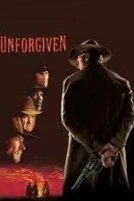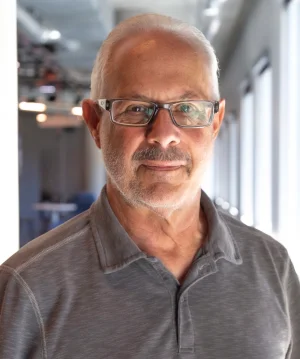Do we have to like the central character? An in-depth analysis of Unforgiven
We hope you enjoy the article below.
If you are a screenwriter looking to network, learn more about the craft or get feedback and exposure for your own projects,
click here to become a Talentville Resident and join our growing community of screenwriters and Industry professionals.

Article
Viewed by: 52 Residents and 602 Guests
DO WE HAVE TO LIKE THE CENTRAL CHARACTER?
A CASE STUDY OF UNFORGIVEN
BY PAUL CHITLIK
One of the most common complaints by studios and production companies about scripts is that the central character is unlikable. “Why would we want to sit in the dark with that person for two hours if we don’t even like him?” Of course, there have been tons of films with unlikable or unsympathetic characters - try “Scarface” on for size. Sometimes characters can just be so damn interesting that we can’t turn away.
 Let’s look at “Unforgiven” to see how David Peoples (“Blade Runner”) wrote a character (directed by and played by Clint Eastwood) who was despicable by nature but who ended up being sympathetic.
Let’s look at “Unforgiven” to see how David Peoples (“Blade Runner”) wrote a character (directed by and played by Clint Eastwood) who was despicable by nature but who ended up being sympathetic.
Unforgiven features a man whose past is full of the most despicable acts compounded by alcoholism. But instead of telling a story of redemption, as a traditional script would, by following the progress of a likable guy who has gone wrong but then finds his way, Peoples chose to tell the story of an unlikable guy who had already redeemed himself and was already living the life of the righteous man.
What, then, Peoples must have asked, can I throw in this man’s path to test him? And what will happen to him when everything goes bad? A character tells you who he is by what does in the face of adversity, right?
We meet William Munny as he buries his wife. Shot from a distance, it’s a remote scene, emblematic of Munny’s stoicism. In marked contrast, we immediately jump to the town of Big Whiskey, where a cowboy gone crazy (presumably on booze) and cuts up a hooker. Because of the inadequate frontier justice dispensed by Little Bill, the sheriff, her fellow hookers gather together and offer up a reward for the murderers. This reward drives the story.
Munny is a dirt farmer, poor as they come, with two kids to raise on his own. We know nothing of what he once was until the Schofield Kid comes a callin’. Schofield, a young gunslinger wannabe, wants to recruit Munny to help kill the cowboy and collect the reward. Munny initially refuses. He’s not like that now, meaning he doesn’t kill, doesn’t drink, doesn’t treat animals cruelly. But, confronted with the sick pigs and no money in sight, he takes off after the Kid, first stopping to recruit Ned (the Morgan Freeman character), who used to ride with him in the old days. To Ned he admits that he regrets his past. He was “one crazy son of a bitch.” Only reason he’ll do this now, kill these cowboys, is for the money. So he’s going to do a bad thing for a good reason.
So is he likable? I don’t know. We’re confused by this character. He’s likable because he’s reformed, he has kids, he’ll do anything to take care of them. But he’s not likable because that includes murder for hire. There’s no passion in the plan for killing these cowboys, it’s not for vengeance. The truth is, it’s money. Still, it’s money to save the farm for his family, so we’re sort of on board with him.
 The situation in town is established when English Bob arrives on the train with his biographer, W. W. Beauchamp. When Bob refuses to surrender his gun to a deputy, the confrontation leads to Little Bill doling out a beating. This is to serve as a warning to other gunslingers looking to get the reward, and it tells the audience what dangers might confront Munny if he should enter the town.
The situation in town is established when English Bob arrives on the train with his biographer, W. W. Beauchamp. When Bob refuses to surrender his gun to a deputy, the confrontation leads to Little Bill doling out a beating. This is to serve as a warning to other gunslingers looking to get the reward, and it tells the audience what dangers might confront Munny if he should enter the town.
Meanwhile, Ned and Munny are ambushed by the Kid, who turns out to be a terrible shot. After some time they decide on a three way split for the reward money. In traditional terms, the team has been brought together and the plan is set.
As Munny and his entourage reach town, they see English Bob riding out on the train. Little Bill has commandeered Beauchamp’s services as biographer and tells him how it “really” was. He also makes sure we know “I do not like assassins. Men of no character.” We know the confrontation is coming.
At the “billiard” house, Will Munny doesn’t go upstairs for an “advance” on his reward like Ned and the Kid do. When deputies enter, and Will denies carrying a gun, he, too, is beaten. In the fracas, Ned and the Kid escape out the windows, and Will eventually crawls out the door. But it’s still not personal, even when Ned and the Kid are sewing up Will. A stoic, Will is driven only by money.
Next morning, Ned and the Kid argue about leaving Will behind. “He ain’t nothin’ but a broke down pig farmer,” the Kid argues, perhaps rightly. But Ned is a loyal friend and he’s not about to do that to his friend. He nurses him through his fever and notes his wish that he doesn’t want his kids to know what he’d done before he met their mother.
Will finally comes out of his delirium, helped by the cut whore. In another character building moment, we see him turn down a chance to collect an advance on his reward “on account of my wife.”
It’s back, now, to the task at hand. They ambush the cowboys, and Will, missing a few times, finally kills one of them. But the experience reminds Ned why he gave up gunslinging, and he pulls out of the deal. Now Will is without his partner. He’s left with an untried, unpredictable kid. Things are going to be different.
Little Bill forms a posse to find who killed the cowboys. This leads to deputies finding Ned on the trail and bringing him in, while the Kid and Will sneak up on the ranch. It also sets in motion events that will return, in part, the story to more traditional themes.
The whole town stops as Little Bill whips Ned. It looks like Ned won’t talk. Meanwhile, back at the ranch (always wanted to say that), the Kid finally shoots the cowboy who’s gone to the outhouse unchaperoned. The Kid admits it was his first kill, and he’s a wreck. Munny’s answer to this is simply, “It’s a helluva thing killing a man. Take away all he’s got and all he’s ever gonna have.” To which the Kid replies, “I guess he had it comin’.” Will’s rejoinder is only, “We all have it comin’, Kid.” In other words, the end is inevitable. Now what do you think of him? Interesting, isn’t he?
When the whore brings them the reward money, she tells them Ned’s dead and that he talked before he died. Now it’s not about the money anymore. It’s about revenge and survival. Little Bill knows his name. Munny must take action according to the code of the west, which is precisely why Little Bill put Ned’s body on display.
Now we can have sympathy for Munny because money no longer is driving his actions. Now he’s driven by loyalty. Now it’s good guy against bad guy again. There are fewer moral ambiguities. The sheriff has done him wrong (and will really do him wrong if he catches him.).
 What does a reformed alcoholic do when confronted by seemingly insurmountable odds? This one drinks again. We know that Will has admitted to doing lots of despicable acts when drunk in the past. We can only imagine what will happen now. But we know he must do them. We admire his loyalty, yet he is a killer. The Kid, on the other hand, turns out to be tremendously shaken by the killing experience and gives his rifle to Will. The killing has changed his life for the better. Will sends him off with the money to give to his kids, and Will rides into town setting up the final confrontation – a battle of Wills (Little Bill versus Will Munny).
What does a reformed alcoholic do when confronted by seemingly insurmountable odds? This one drinks again. We know that Will has admitted to doing lots of despicable acts when drunk in the past. We can only imagine what will happen now. But we know he must do them. We admire his loyalty, yet he is a killer. The Kid, on the other hand, turns out to be tremendously shaken by the killing experience and gives his rifle to Will. The killing has changed his life for the better. Will sends him off with the money to give to his kids, and Will rides into town setting up the final confrontation – a battle of Wills (Little Bill versus Will Munny).
Little Bill has put Ned’s body on display in front of the billiard hall/saloon, and Will enters the bar with his shotgun ready. In a room full of deputies and Little Bill, he fires and kills the bar’s owner, Skinny, for decorating his saloon with his friend. Then he turns the shotgun on Little Bill, but it misfires. But that doesn’t stop his rage. He throws the shotgun at Bill and then kills him and several others with his pistol. Within moments he’s killed everyone that needs killing and spared everyone who doesn’t. He leaves the living to bury the dead, and they don’t bother him on the way out. In fact, he’s a mass murderer, but…
The film closes with him returning to visit the grave, presumably to ask forgiveness and to go on with his life.
One technique we can learn from Unforgiven is that when you have a basically unlikeable central character, you can make him sympathetic by opposing him with an even more unlikeable antagonist. You can also have him do the wrong things (murder, revenge) for the right reasons (to take care of his children, eliminate a wrongdoer), and get justice for a friend. This makes for a very interesting, even fascinating central character - who’s not so bad after all.
When the story makes the change from a simple murder for hire to a question of loyalty and revenge, we have a complex character. The more complex the central character, the better your script.
© Copyright 2014 by Paul Chitlik.
|
Paul Chitlik is a professor of screenwriting at Loyola Marymount University in Playa Vista, Ca.
In addition, Paul has written screenplays for Rysher Entertainment, Promark, Dick Clark Productions and all of the major networks, including UPN's first movie for television, Alien Abduction. |





Comments on Do we have to like the central character? An in-depth analysis of Unforgiven